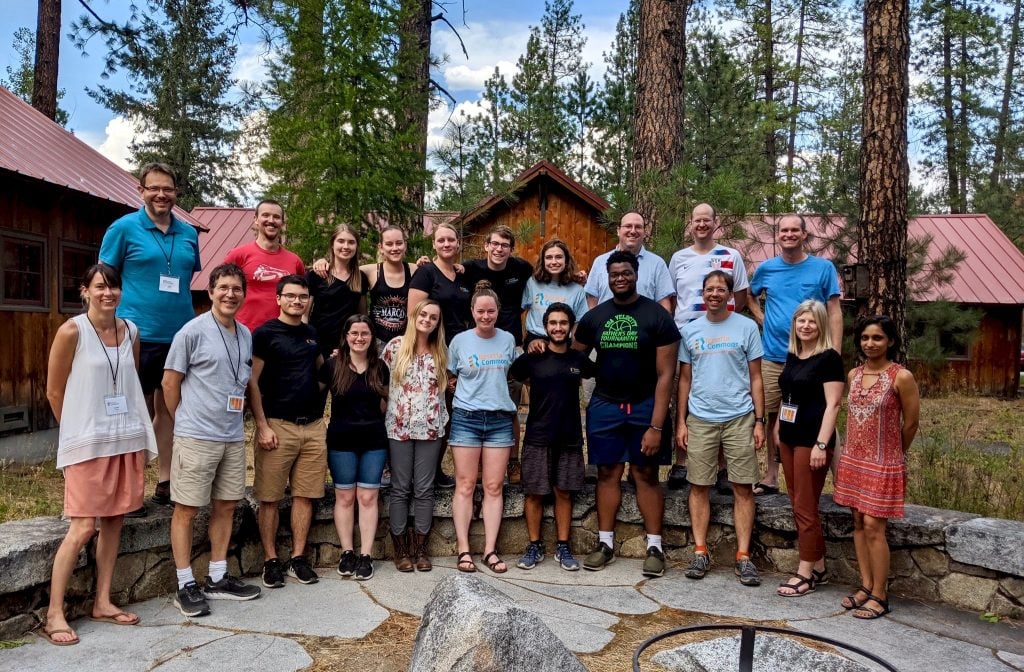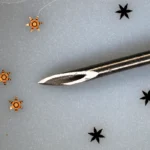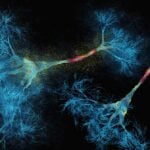Q&A with Rosetta Commons Intern, Zion Perry

The Rosetta Commons internship is a National Science Foundation supported Research Experience for Undergraduates (REU) program. In this geographically-distributed REU program, students participate in research using the Rosetta Commons software.
Johns Hopkins University is a member of Rosetta Commons. It is a collaborative group of laboratories, institutes, research centers, and corporate partners in the US and abroad that develop software to understand, predict, and design biomolecules including proteins and nucleic acids. Meet Zion Perry, a 2019 intern, as she describes her experience in the program, using the Rosetta software, and how the experience helped to shape her career decisions.
Tell us about yourself
My name is Zion Perry and I am a rising senior at the Massachusetts Institute of Technology, or MIT as it is commonly known, studying bioengineering. I enjoy bioengineering because it exists at the intersection of the fundamental sciences of math, physics, chemistry, and biology, I am learning to creatively engineer biological systems.
Why did you choose to apply for the Rosetta Commons REU Program at INBT?
I became fascinated in studying proteins through my coursework and biochemistry research at MIT. I love learning about the intricate details of protein mechanisms and had primarily wet lab experience.
As I began searching for an internship, I came across the Rosetta internship and I was captivated by the idea of computational protein design. The idea of applying protein design resonated with me and the thought of a summer of computational research sounded new and exciting! Although I did not have much experience coding and did not know what designing a protein would entail, I was eager for the challenge.
Explain the research you did this summer.
I worked in the lab of Tanja Kortemme at University of California, San Francisco (UCSF). Her lab uses both computational and experimental approaches to engineer novel proteins. My project focused on redesigning the ligand binding site of a transcription factor LacI. Multiple ligands control LacI allosterically, which means they induce a conformational change distant from the binding site.
My design goal was to alter the effects of different ligands on the allosteric response. To improve a current Rosetta design protocol, I added explicit water molecules into the binding site. Water molecules often take on structurally or functionally significant roles in proteins, so mapping water-mediated hydrogen bonds in the LacI binding site gave me useful information to computationally redesign the LacI binding site. I then experimentally created and tested some of my designs with different ligands.
What did a typical day look like for you during your internship?
I spent most of my days running Rosetta protocols, coding, or analyzing data on the computer. When working with computers, issues arise seemingly everywhere, and so I asked my mentor (who was a postdoctoral scholar in the lab) for a lot of help getting started and guidance as I progressed on my project. I enjoyed this close interaction and became more independent as the summer went along.
Computational work also lends itself well to tinkering around since I don’t have to worry about the cost of reagents, so I learned a lot of problem solving and debugging skills! I liked that I could also finish work from home if needed since my lab was essentially my computer. I really valued being in lab physically though and discussing details with my mentor and other researchers in the lab.
Tell us about the internship's format.
The REU group included 11 interns, a perfect size for creating a tight-knit group. We came from various backgrounds (computer science with no biology experience, to biology with no coding experience) from around the country. We learned a lot from each other!
The first week of the internship was a PyRosetta bootcamp in Chapel Hill, North Carolina where we learned the python interface to Rosetta. Five days were spent in 10 hours of lectures and coding labs (with additional lunch and dinner breaks). This intense environment immediately brought us close, since we collaborated on the challenging assignments. We all grew a lot in this week, and I think we were all excited to run some of our first Rosetta protocols. One of my favorites was a protein folding lab and actually visualizing the protein folding in PyMOL (a molecular visualization software). The long lunch and dinner breaks at restaurants provided ample time for getting to know each other, the instructor, and teaching assistants as well.
During the eight-week internship, we had weekly video chat meetings, where two interns presented a paper to discuss in Journal Club. Two Rosetta lab primary investigators (on a rotating schedule) then moderated a discussion topic.
We then reunited in Seattle, Washington and explored the city a little bit before heading to RosettaCON, a conference for the labs in the Rosetta community. Even though we were only together two weeks bookending the internship, I think we got really close and had a lot of fun together; it was hard to say goodbye to everyone!
What happens at RosettaCON?
The Rosetta Community consists of 60+ labs around the country and world that use Rosetta in their research. The community comes together at the annual RosettaCON in Leavenworth, Washington (outside of Seattle). It was wonderful to hear of the vast array of research being done in Rosetta. The community is very inclusive and welcoming to all backgrounds and levels of experience.
The Rosetta community is in general very close, and the conference felt like a family reunion. We got to chat with many of the Rosetta primary investigators and learn about opportunities to continue using Rosetta in graduate school. Each intern presented a poster of our summer research at a poster session. I found it valuable to get feedback from experienced Rosetta users in the informal atmosphere of the poster session. The last day was reserved for an activity, and I got to go hiking with some of my friends in the beautiful Cascade mountains.
Now that the internship is over, has it changed your career plans?
This internship solidified my decision to apply to graduate school. This experience helped shaped the type of research programs I am interested in, and I know I definitely want to combine computation and experimentation in my future research. I want to stay in protein science and I am now becoming interested in protein interaction networks and systems biology approaches.
You can learn more about the internship and application requirements on our website.
Latest Posts
-
 Johns Hopkins Postdoc Named in Forbes `30 Under 30′ List
December 8, 2025
Johns Hopkins Postdoc Named in Forbes `30 Under 30′ List
December 8, 2025
-
 Micro Grippers: David Gracias Builds Micromachines That Fold, Stick, Swim, and Sense—All Inside the Human Body.
November 20, 2025
Micro Grippers: David Gracias Builds Micromachines That Fold, Stick, Swim, and Sense—All Inside the Human Body.
November 20, 2025
-
 A bold new approach to autoimmune diseases
November 19, 2025
A bold new approach to autoimmune diseases
November 19, 2025


